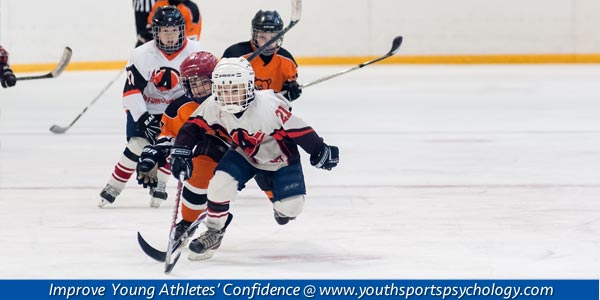Young Athlete Maturity Levels And Confidence
Should kids be grouped by maturity level?
And will it help them have more fun or feel more confident?
Dr. Gary Brazina knows what he’s talking about when he says some young athletes struggle with confidence because of maturity differences. He’s a sports dad, an orthopedic surgeon in LA who is team physician to the LA Heat and a second opinion physician to the NFL Players Association.
He has made two observations, which are related.
Number One: We need to helps kids have more fun in sports, he says. Here at the Ultimate Sports Parent and Kids’ Sports Psychology, we agree.
Number Two: Kids should be grouped by maturity level, not by age.
Why are Brazina’s two observations about youth sports related? When kids play against same-age peers who are bigger, stronger and more mature, it’s not always a lot of fun. And that creates mental game challenges. Read on to learn more….
“In the adolescent athlete, you may have a 13-year-old who is shaving competing against a kid who has not gone through puberty,” he says.
The young athlete who matured faster often has advantages. He’s “pre-selected” and often gets more attention and coaching.
He cites Malcolm Gladwell’s book, “Outliers: The Story of Success,” which says that professional hockey teams’ best players had birthdays around the same time of year. They were the ones who were older than the other kids.
“The larger, more mature players were naturally more coached and did better at a younger age, and the kids only 10 months younger did not get the same treatment and grew later and did not become professional athletes,” he says.
The problem, Dr. Brazina adds:
“We are pre-selecting these athletes so early that the kids who may mature later do not get the experience and coaching just because of their delayed maturity level.”
Again, this does not help kids grow confidence—to see others get more attention or resources because of their size and weight.
The more mature kids get pre-selected when there’s too much focus on the score, Dr. Brazina says.
“The focus shouldn’t be on winning, but on how to pitch, skate, and dribble – as opposed to who scored the most goals. Some kids may not mature until later and be eliminated by competition,” he says.
His solution:
Group kids by maturity level, not by age.
“I would also have a lot more JV teams where everyone can participate,” says Dr. Brazina. “Also, require that every kid has to play the same amount of time in every game. Until they are at that level where competition is more intense, keep it fun.”
As we mention above, we agree that having fun is critical to ensuring kids benefit from sports.
To ensure your kids have fun, you should:
- Focus on the process, rather than the score. Help kids focus on the next shot or play, rather than on the scoreboard.
- Find something positive to say about every game. Avoid picking apart every mistake kids make or over-analyzing your kids’ games or performances.
- Be sure to cheer for other young athletes—not just your own.
- Just before a game, tell your young athletes to have fun. Don’t tell them to score 15 points or nab 13 rebounds. This can create expectations that might undermine their confidence.
And here’s one more from Dr. Brazina:
When your kids are hurt, don’t insist that they play! He says one of his patients’ parents wanted him to take off a cast so their 12-year-old son could pitch in the championship game!
Related Articles on Kids’ Mental Game:
- Teaching Sports Kids Pregame Plans
- Addressing Anxiety, Mistakes and Low Confidence in Youth Sports
- How Can Sports Kids Get to the Next Level?
*Subscribe to The Sports Psychology Podcast on iTunes
*Subscribe to The Sports Psychology Podcast on Spotify
Improve Your Mental Game From Anywhere In The World

We’re certain that, as a parent, you want to help your child develop confidence and discipline in sports and life. And as a sports parent, you’d love for your children to reach their potential in sports. But encouraging your child to strive for greatness without pressuring them can be a challenge.
You can get expert mental coaching with us from anywhere. Meet with us via Zoom, Skype, FaceTime or phone call. With today’s video technology, we are able to connect with athletes and coaches all over the globe.
Call Us Today to Schedule Your Free 15-Minute Session.
Find Out How Your Athlete Can Benefit From One-on-One Mental Coaching!

